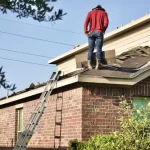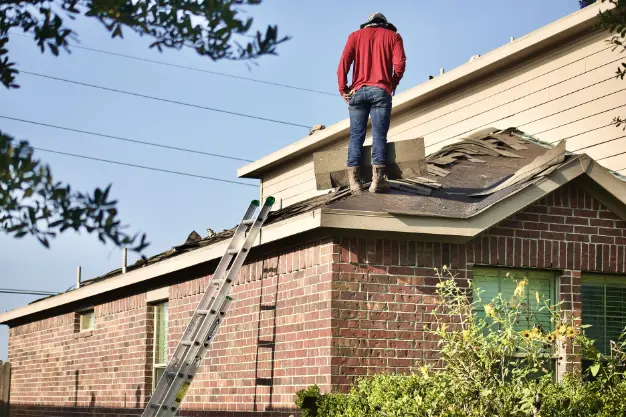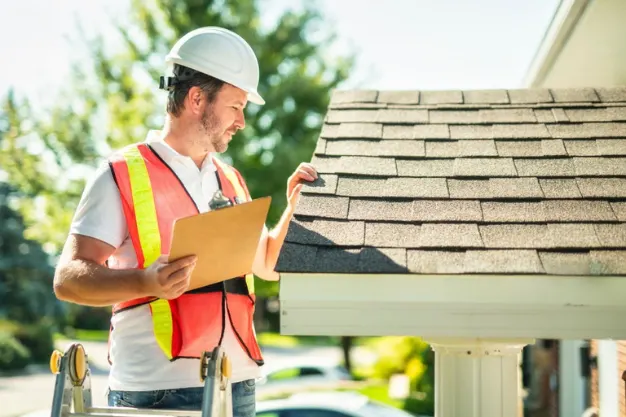
Roof Inspection Checklist: What Every Homeowner Should Know
October 13, 2025When was the last time a professional looked at your roof? Many people who own homes or businesses only think about having their roofs inspected after they see damage or leaks. But you need a professional roof inspection to keep your roof in good shape, avoid expensive repairs, and extend its lifespan.
If you know what happens during an inspection, you can make wise choices about how to take care of your roof, whether you’re buying a new home, maintaining a business building, or getting ready for storm season.
This guide will explain how companies conducting roof inspections evaluate your roof, what certified inspectors look for, and why it’s a good idea to have your roof inspected regularly.
Step 1: Initial Consultation and Roof Access
A consultation is the first step for most roof inspection services. At this point, the certified roof inspector talks to you about your concerns, looks over any previous inspection reports, and learns about the materials and history of your roof.
After the consultation, the inspector uses ladders or lift equipment to get to the roof safely. For commercial roof inspectors, this step might also include going over building plans and safety rules before getting on top of the building.
The goal is to get a complete picture of the structure and its appearance, including the shingles, flashing, gutters, and vents.
Step 2: Exterior Roof Assessment
The process gets more detailed and hands-on during the exterior inspection. Roof inspectors carefully look at the following parts:
- Shingles or other roofing materials: Looking for cracks, curling, loose edges, or missing shingles that could let water in.
- Flashing and Seals: Checking for loose or broken seals around chimneys, vents, and skylights.
- Gutters and downspouts: Making sure that water flows freely and that leaves and other debris don’t block the system.
- Valleys and ridges on the roof: Making sure they are straight and that water flows freely to stop leaks.
If the roof of a commercial building is flat or has a low slope, a commercial roof inspector will also look for water pools, holes, or blisters, which could indicate problems with the drainage or membrane.
Step 3: Interior Roof Evaluation
A comprehensive inspection looksat more than just the outside. Professionalroof inspection services always look at the inside of the roof as well to find any hidden signs of damage.
The inspector looks for these things in ceilings, attics, and insulation:
- Leaks can be seen as stains or water spots.
- Mold or mildew caused by trapped moisture.
- Light penetration through roof decking.
- Not having enough air flow, which could shorten the life of the roof.
These results are significant because they often reveal problems before they manifest outside.
Step 4: Structural Integrity and Safety Check
Every roof must be able to hold weight, stand up to wind pressure, and keep water out without losing its structural strength. A trained roof inspector checks the rafters, trusses, joists, and decking for sagging, wood rot, and corrosion.
For commercial buildings, inspectors may also check HVAC units or solar installations on the roof to ensure they’re properly attached and not putting extra stress on the building.
This step makes sure that your roof meets safety and building code requirements. This is an essential step if you want to keep your insurance coverage or sell your home.
Step 5: Infrared or Drone Inspection (Advanced Tools)
Increasingly, modern roof inspection services use technology to find problems that can’t be seen with the naked eye.
Infrared scanning helps find water that is trapped below the surface.
Inspections by drones take safe, high-resolution pictures of places that are hard to get to.
For big commercial roofs, drones make it fast and accurate for the commercial roof inspector to map and write down the roof’s condition. You can use the pictures produced by these digital tools to file insurance claims or plan maintenance.
Step 6: Documentation and Reporting
When roof inspection companies are done, they write up a detailed report that summarizes everything they find.
This report typically includes:
- Photos of damaged or high-risk areas.
- Notes on structural condition and material performance.
- Recommendations for repairs or preventive maintenance.
- Cost estimates or referrals for repair services.
A certified roof inspector ensures the report is clear, allowing you to determine what needs fixing first and plan for future maintenance.
Step 7: Post-Inspection Consultation
Last, the inspector goes over the report with you. This step is crucial because it helps the property owners understand what each finding means and what they should do next.
A professional might suggest some minor fixes, waterproofing, or regular check-ups, especially after big storms or changes in the seasons.
For businesses, the commercial roof inspector may also suggest long-term maintenance plans to meet the needs of the warranty or local safety standards.
Why Regular Roof Inspections Matter?
By having your roof inspected once or twice a year, you can avoid big problems and make your roof last longer. This is why regular checks are essential:
- Finding problems early: Fixing small leaks or loose shingles before they get worse can save you a lot of money on repairs.
- Improved Energy Efficiency: A roof that is well taken care of helps keep the temperature stable and lowers utility bills.
- Insurance and Warranty Compliance: For many policies to stay valid, they need to be inspected regularly.
- Comfort: You will know that your roof is safe and ready for any weather.
Updating your roof isn’t just for safety; it’s also for keeping your property safe and increasing its value, whether you own a home or a business.
Conclusion
A roof inspection might look like a simple task, but it’s actually a very involved process that requires skill, experience, and close attention to detail. If you have a professional,hire one; they can find hidden problems, stop leaks, and ensure your roof keeps working well for years to come.
At Precise Roofing LLC, our certified roof inspectors take care of both residential and commercial properties and perform their duties efficiently. We are proud to be one of the most trustworthy roof inspection companies. We offer honest opinions and long-lasting solutions that keep your home or business safe, efficient, and secure. Please make an appointment for your inspection right away, because only Precise Roofing LLC can give your roof the care and precision it needs.


